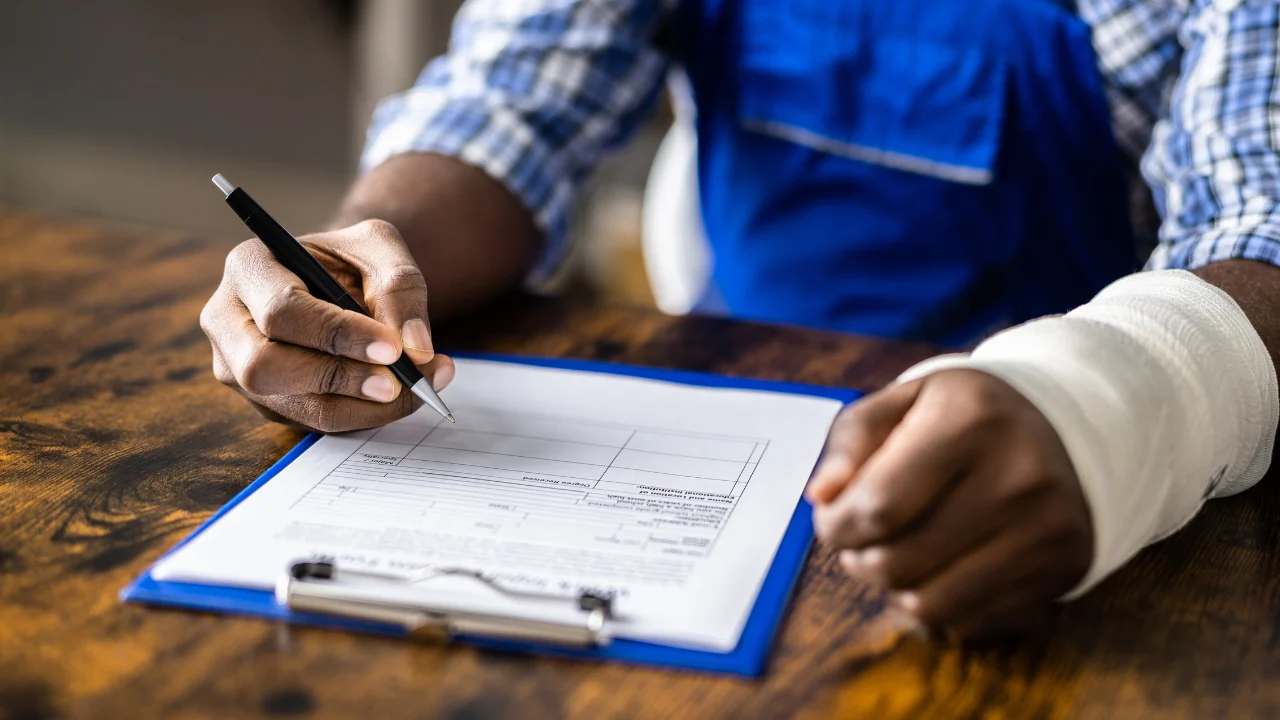
The Dos and Don’ts of giving a statement to a workers compensation investigator
Published on July 7, 2023 by Aleisha Nair
Lodging a workers compensation claim can be stressful and it is difficult to know what to say and what not to say. Once you lodge a workers compensation claim, the insurer will commence its investigation into the circumstances of the injury. Part of these investigations involve the appointment of an external investigator to take a statement. This article explores the dos and don’ts of giving a statement to a workers compensation investigator.
Insurers generally organise factual investigations to:
- Gather the general facts of the claim;
- Determine whether you meet the legislative definition of a ‘worker’[1] or;
- Understand the factual circumstances of your injury[2].
Arranging the interview
If you are asked to participate in a factual investigation, the Insurer must provide their request in writing. You have a right to know:
- The purpose of the factual investigation;
- The expected duration of the interview, noting that an interview cannot exceed 2 hours;
- That you can nominate where the interview takes place;
- That you can have a support person present, such as a family member, friend or union representative;
- That you can request an interpreter;
- That you can identify witnesses who you believe can assist in the investigation;
- That you will be provided a copy of the statement in draft form within 10 business days from the date of the interview;
- That there is no obligation for you to participate in the factual investigation but doing so may help determine liability for your claim.[2]
What kind of questions will be asked?
The investigator will usually start by taking background information, including:
- A brief employment history; and
- Any previous / pre-existing / comorbid injuries or conditions.
The investigator will then likely discuss the circumstances of your injury at work.
The investigator tends to lead the discussion, which can sometimes cause confusion, and may result in critical information being missed.
You should answer the investigator’s questions honestly and with sufficient detail to inform the insurer of the critical circumstances of your injury. We recommend, however, that you follow the following tips to improve your chances of having your claim accepted.
Dos and Don’ts
You should not:
1. Allow a transcript to be taken
These interviews are often recorded. You should tell the investigator prior to the interview that you will only allow the recording to be used for the investigator’s note-taking, and not for any other purpose. This means that the investigator cannot use a transcript as your statement.
2. Overshare
The statement should be short and to the point. It must only contain information relevant to the claim and that is necessary for the reader to understand how you were injured. Try to avoid giving lengthy answers which may cause confusion or be easily misinterpreted.
3. Guess
You can only give a statement about what you have experienced yourself i.e. what you saw, felt, smelled, touched or (in some cases) tasted. If you did not experience something yourself, then the only evidence you can give is what you understood and why. Do not guess.
4. Sign the statement on the spot.
You should ask for the statement to be provided to in a draft format, via Microsoft word. This will allow you to be able to read it closely, make any necessary changes and obtain legal advice. Once you are happy with its content, you can then send the investigator a signed copy of the statement
You should:
1. Prepare a Work and Educational History
It is helpful to bring your resume to the interview to prompt you regarding your employment history. It is not always necessary to detail your entire work history, however there is no harm in doing so, and it can be helpful for future claims.
2. Prepare a Chronology of events
Injuries can be very overwhelming, and this may make it difficult to remember all relevant events. It is helpful to prepare a chronology of events with the assistance of a family member, close friend, or even your medical practitioners. Your chronology should include a date and description of the event. The relevant events may include any pre-existing or previous injuries (relating to the subject injury), when you were injured / first noticed symptoms, and a brief outline of your treatment and current symptoms.
3. Be honest
If you are dishonest during an interview, you may be reported for workers compensation fraud. This is a serious offence and may lead to prosecution under the workers compensation scheme.[3] In serious cases, you may be criminally prosecuted.[4]
Examples of fraud may include:
- Claiming for an injury that did not occur at work;
- Non-disclosure of multiple claims relating to the same injury, and;
- Supplying false or misleading information in relation to a claim.[5]
After the interview
You should not sign the statement during the interview.
Instead, you should ask for a draft copy of your statement, so that you can read over it in your own time, make any necessary changes and obtain legal advice.
Statements are a critical piece of evidence in your claim. It is important that they are accurate and are drafted appropriately.
You should not sign a statement which you believe is not correct. You are not obliged to sign the statement prepared by the investigator.
The investigator is supposed to be impartial to you and the insurer, however we strongly recommend obtaining legal advice prior to signing any statement.
Have you been asked to participate in a factual investigation? If you need assistance, contact Carroll & O’Dea Lawyers by calling 1800 059 278 or visiting our Contact Us page here.
[1] Section 4 Workers Compensation Act 1987 (NSW)
[2] SIRA Standards of Practice, s 24 Factual Investigations
[3] Section 235A and 235C of the Workplace Injury Management and Workers Compensation Act 1998 (NSW).
[4] Part 4AA of the Crimes Act 1900.
[5] SIRA Workers compensation fraud
